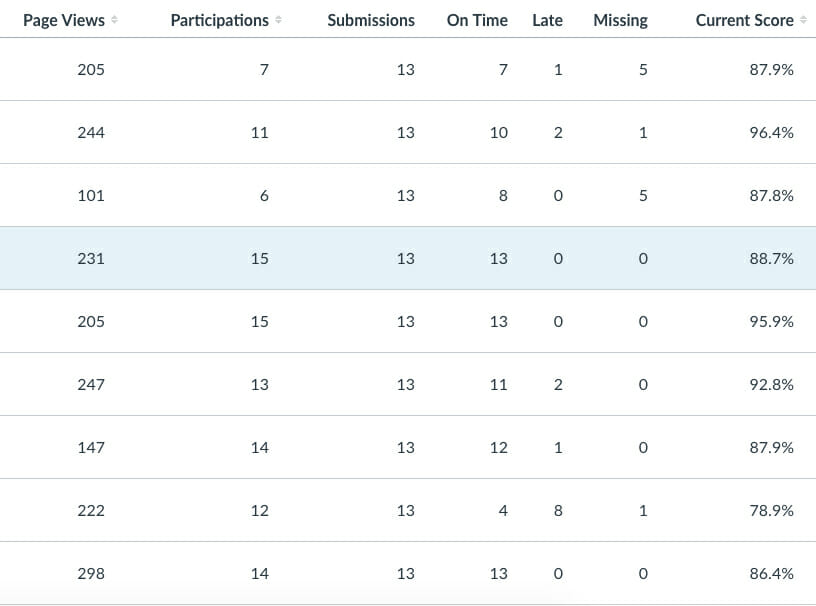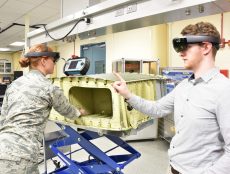
Articles
New Technologies Make Cheating Your Way Through College Difficult
By Cait Etherington
August 25, 2017
Over the next few weeks, college-age kids will arrive back on campus. Once campus security and custodians deal with the clean up from all those messy back-to-school parties, the “start up” will be over and everyone will get back to work. In the past, this generally meant buying a bunch of textbooks and “course packages” (photocopied collections of readings) and hitting the books. In 2017, this more likely means logging on to Canvas, Blackboard or another popular learning management system (LMS) and engaging with a series of online readings and assignments. What many students don’t realize is that these systems also make cheating far more difficult.
By and large, the arrival of LMSs over the past two decades has been welcome news for both students and professors. Rather than lug around huge bags of books and spend hours photocopying readings, students can now access course materials and even materials from missed lectures anytime and anywhere. Kelly, a third year students at The New School in New York City, says that she likes knowing that she can always access her readings and homework, even when she wakes up in a different borough: “I live downtown but most of my friends and my boyfriend live in Brooklyn. If I wake up on the other side of the bridge, which I do a lot, I still have my homework with me, because my profs put most stuff on Canvas. I can do my readings and even a lot of assignments on my phone while riding the subway back to campus.”
For professors, life has also gotten easier. In the past, it was common for professors to spend much of August standing beside a photocopier making course packages and handouts. Today, professors can easily roll over old courses, including any uploaded readings, and set up their new semester’s courses in hours rather than days. But with the arrival of LMSs, something else has also changed. Professors can now more easily spy on their students and not just when they are present in the classroom.
Don’t Lie About Late or Unsubmitted Assignments
It happens to the best of students. Sometimes, one has to hand in an assignment late. In the past, there were several ways to deal with this situation. If the essay was due at 5, you could lie and say you dropped it off at 5:05 (even if you slipped it under an office door or into a mailbox the next morning at 7:10 am). Now, stealing an extra evening is much more difficult. If your professor is using an LMS, they will know exactly when the assignment was uploaded. While many professors won’t care if an essay is uploaded at midnight or 4:00 am, some will and either way, they will know exactly when it arrived.
Likewise, in the past, students could more easily lie about submitting assignments that were in fact never submitted. In a print culture, educators with hundreds of students often did struggle to keep track of assignments (if you think it’s easy, try lugging around 300 exams and not misplacing a single page). As a result, some professors would simply accept assignments that students claimed had been submitted. After all, in a print culture, some assignments were lost. With today’s online learning platforms, such deception is no longer possible. On the backend of learning management systems, such as Canvas or Blackboard, professors can see what you have uploaded, when and sometimes even when you attempted an upload. Since students can also see what they have uploaded, the onus is now on students not professors to ensure the assignments are uploaded in an accessible format and timely manner. This is good news for educators and bad news for anyone interested in cheating.
Cheating Is More Difficult When Professors Can See If You’ve Done the Readings
In the past, cheating was easy, especially when it came to lying about having done the readings. Roll into class at the last minute, skim a few pages, and then try to fake it out with provocative comments that may be only vaguely connected to the readings. In 2017, this cheat is no longer possible. If you’re professor has uploaded the readings on to an LMS, they can see exactly how many pages you’ve viewed and how many minutes you’ve spent on each reading (see the screen shot below for a detailed look at just some of the information your professors can see on Canvas).

Don’t Claim You Were There If You Weren’t
Attendance is not yet automated, but this may arrive soon (e.g., if universities start to issue swipe cards or use biometric devices to determine not only when students are present but whether or not they stay for an entire lecture, lab or seminar). For now, however, professors already do have many more tools to make attendance easier and more accurate. If attendance was once collected, often haphazardly, on sign-in sheets passed around the classroom, it is now typically done online and therefore, less vulnerable to loss over the course of the semester.
Thinking about cheating your way through college? Sure, it’s still possible, but there is no question that many tried and true cheats are no longer something the laziest college students can simply take for granted. With new tools and data at their finger tips, even the most absent minded professors are now easily able to stay on top of assignment submissions, participation, and attendance.









One Comment